Share

Who Was She?
Trailer for Season 2: Zaynab
Full Transcript:
Who was she? Podcast will focus on the stories of women throughout history that were active in the Baha’i Faith. This season is about Zaynab. She was a 19th-century village girl from Persia, now Iran in the early history of the Bahai Faith who fought for religious freedom.
There is little information known about Zaynab but her bravery and sacrifice inspired many to follow in her footsteps.
When a new faith began in 1844 in present-day Iran, there were many attempts to end it. We will learn about the siege of Zanjan, one of the most violent and devastating battles in this new Faith’s history and about one of their most fearless warriors, Zaynab.
She disguised herself as a man to fight in the front lines. It was written that, “No man has shown himself capable of such vitality and courage.”
In the book, God Passes By by Shoghi Effendi, Guardian of the Baha’i Faith, He wrote,
“The resourcefulness and incredible audacity of Zaynab, a village maiden, who, fired with an irrepressible yearning to throw in her lot with the defenders of the Fort, disguised herself in male attire, cut off her locks, girt a sword about her waist, rushed headlong in pursuit of the assailants, and who, disdainful of food and sleep, continued, during a period of five months, in the thick of the turmoil, to animate the zeal and to rush to the rescue of her men companions ...these stand out as the highlights of this bloody contest.”
So please subscribe and learn more about this amazing woman who fought so bravely and inspired many.
You can also find more information on our Instagram, Facebook and Pinterest @whowasshe podcast. Music was composed and performed by Sam Redd. Script editor and graphics are by Angela Musacchio. I am your host, Tara Jabbari. Join us as we begin our journey about Zaynab.
More episodes
View all episodes
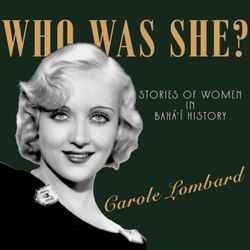
9. Bonus episode! BTS on Carole Lombard!
44:06||Season 4, Ep. 9A conversation with host Tara and her friend, Angie. Learn how this podcast season came about, the challenges, the creative process, and the people who helped make this season! We have a website! https://www.podpage.com/whowasshepodcast/You can also find more information on our social media:http://instagram.com/whowasshepodcasthttps://www.facebook.com/whowasshepodcasthttps://www.pinterest.com/whowasshepodcastOur music composer, Sam Redd is on SoundCloud as "Sam Redd": https://soundcloud.com/samreddand YouTube as @SammyManhattan: https://www.youtube.com/@sammymanhattanSubscribe on your favorite podcast platform: https://pod.link/1548368026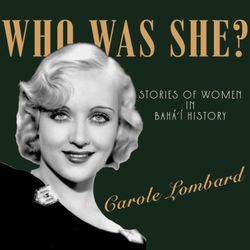
8. It's Been An Honor
18:49||Season 8, Ep. 8In our last episode of the season, we find out the challenges of Carole's love story with Clark Gable, her connections to some familiar names, her efforts to help during World War II, and her untimely death.We have a website! https://www.podpage.com/whowasshepodcast/You can also find more information on our social media:http://instagram.com/whowasshepodcasthttps://www.facebook.com/whowasshepodcasthttps://www.pinterest.com/whowasshepodcastOur music composer, Sam Redd is on SoundCloud as "Sam Redd": https://soundcloud.com/samreddand YouTube as @SammyManhattan: https://www.youtube.com/@sammymanhattanSubscribe on your favorite podcast platform: https://pod.link/1548368026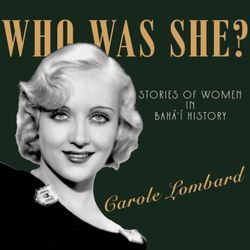
7. The Greatest Love Story
13:46||Season 4, Ep. 7How did Carole and Clark Gable finally become a couple? Why does "Gone with the Wind" have anything to do with it? Find out in the latest episode! We have a website! https://www.podpage.com/whowasshepodcast/You can also find more information on our social media:http://instagram.com/whowasshepodcasthttps://www.facebook.com/whowasshepodcasthttps://www.pinterest.com/whowasshepodcastOur music composer, Sam Redd is on SoundCloud as "Sam Redd": https://soundcloud.com/samreddand YouTube as @SammyManhattan: https://www.youtube.com/@sammymanhattanSubscribe on your favorite podcast platform: https://pod.link/1548368026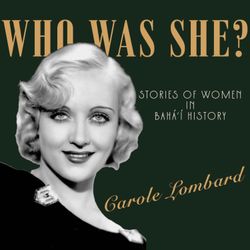
6. Her Greatest Heartbreak
08:09||Season 4, Ep. 6Two major deaths occur that impact Carole's life, which drives her to work harder in Hollywood. We have a website! https://www.podpage.com/whowasshepodcast/You can also find more information on our social media:http://instagram.com/whowasshepodcasthttps://www.facebook.com/whowasshepodcasthttps://www.pinterest.com/whowasshepodcastOur music composer, Sam Redd is on SoundCloud as "Sam Redd": https://soundcloud.com/samreddand YouTube as @SammyManhattan: https://www.youtube.com/@sammymanhattanSubscribe on your favorite podcast platform: https://pod.link/1548368026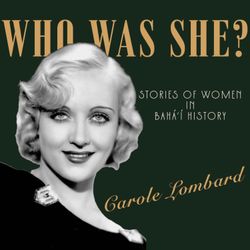
5. The Studios Trading Girl
11:45||Season 4, Ep. 5In this episode, Carole grows in her career, building her reputation as the comedic actress in Hollywood, working with major studios like Paramount and Columbia, making seven films back to back in one year, navigating a failing marriage, and much more!We have a website! https://www.podpage.com/whowasshepodcast/You can also find more information on our social media:http://instagram.com/whowasshepodcasthttps://www.facebook.com/whowasshepodcasthttps://www.pinterest.com/whowasshepodcastOur music composer, Sam Redd is on SoundCloud as "Sam Redd": https://soundcloud.com/samreddand YouTube as @SammyManhattan: https://www.youtube.com/@sammymanhattanSubscribe on your favorite podcast platform: https://pod.link/1548368026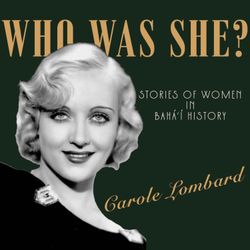
4. Mrs. Carole Powell
10:33||Season 4, Ep. 4Carole gets married, becomes the favorite client for the infamous talent agent, Myron Selznick, and holds her own against Harry Cohen, aka "The most hated man in Hollywood," plus much more! We have a website! https://www.podpage.com/whowasshepodcast/You can also find more information on our social media:http://instagram.com/whowasshepodcasthttps://www.facebook.com/whowasshepodcasthttps://www.pinterest.com/whowasshepodcastOur music composer, Sam Redd is on SoundCloud as "Sam Redd": https://soundcloud.com/samreddand YouTube as @SammyManhattan: https://www.youtube.com/@sammymanhattanSubscribe on your favorite podcast platform: https://pod.link/1548368026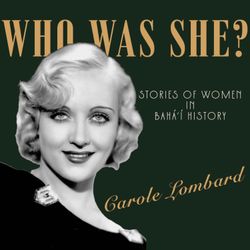
3. The Orchid Lady
07:06||Season 4, Ep. 3In the third episode of this new season, we follow Lombard's transformation from a struggling actress to becoming Paramount Pictures' "Orchid," how she earned the respect of Hollywood, and more! We have a website! https://www.podpage.com/whowasshepodcast/You can also find more information on our social media:http://instagram.com/whowasshepodcasthttps://www.facebook.com/whowasshepodcasthttps://www.pinterest.com/whowasshepodcastOur music composer, Sam Redd is on SoundCloud as "Sam Redd": https://soundcloud.com/samreddand YouTube as @SammyManhattan: https://www.youtube.com/@sammymanhattanSubscribe on your favorite podcast platform: https://pod.link/1548368026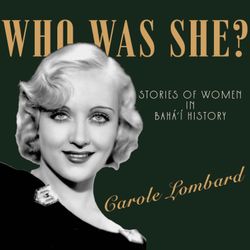
2. Introducing Carol Lombard
18:11||Season 4, Ep. 2This season is about one of Hollywood's first starlets, Carole Lombard and in this second episode, we learn about how she went from Jane Peters to her new screen name, Carol (without the e) Lombard, auditioning and avoiding the infamous 'casting couch' with Charlie Chaplin and John Barrymore, the car crash that nearly ended her career, and more!We have a website! https://www.podpage.com/whowasshepodcast/You can also find more information on our social media:http://instagram.com/whowasshepodcasthttps://www.facebook.com/whowasshepodcasthttps://www.pinterest.com/whowasshepodcastOur music composer, Sam Redd is on SoundCloud as "Sam Redd": https://soundcloud.com/samreddand YouTube as @SammyManhattan: https://www.youtube.com/@sammymanhattan Subscribe on your favorite podcast platform: https://pod.link/1548368026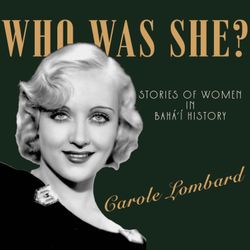
1. Who was Jane Peters?
10:32||Season 4, Ep. 1Welcome to Who was she? Podcast where your host, Tara Jabbari focuses on the stories of women throughout history that were active in the Baha’i Faith. This season is about one of Hollywood's first starlets, Carole Lombard.This first episode shares the story of her early beginnings from Indiana to what led to her family moving to Los Angeles. We have a website! https://www.podpage.com/whowasshepodcast/ You can also find more information on our social media:http://instagram.com/whowasshepodcasthttps://www.facebook.com/whowasshepodcasthttps://www.pinterest.com/whowasshepodcastSubscribe on your favorite podcast platform: https://pod.link/1548368026